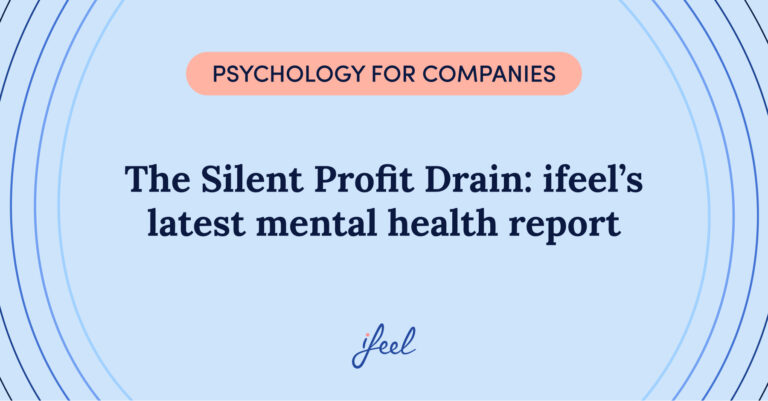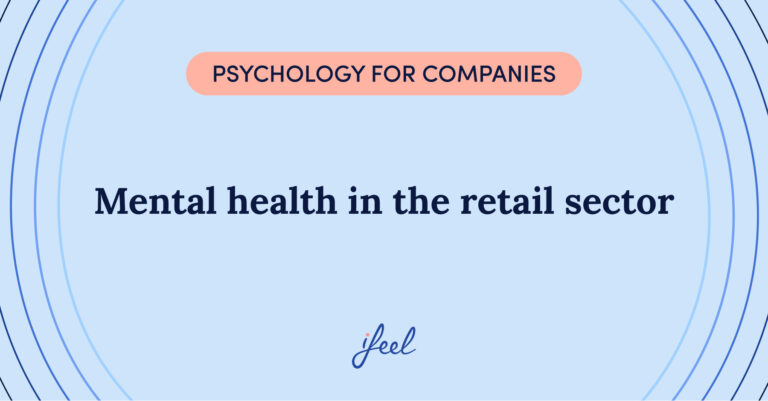Several terms and approaches have emerged in recent years designed to enhance leadership skills in the business environment. In this context, leadership coaching has gained popularity as a tool capable of boosting the growth and effectiveness of leaders within organisations. This method improves key competencies such as communication, decision-making, and change management.
However, in a corporate context where mental health at work has become increasingly relevant, it is essential to question whether leadership coaching alone is sufficient. The pressure and stress that leaders are under, especially in senior management positions, require a more comprehensive approach.
This is where the intervention of expert psychologists can be beneficial. They offer a deeper understanding of mental well-being and provide practical strategies to enable the individual to address complex mental health issues. This holistic approach strengthens the individual and enriches the organisational culture.
The scope of leadership coaching
Leadership coaching focuses on enhancing critical leadership skills, such as decision-making, change management, and the development of emotional intelligence.
Through personalised sessions, a coach works with an executive, manager, or leader to identify their strengths and areas for improvement and design an action plan to achieve specific objectives.
However, as a tool, leadership coaching may not be sufficient if the leader requires more attention to mental health issues. Let’s take a closer look at the benefits and limitations related to leadership coaching:
| Benefits | Limitations |
|---|---|
| It may not fully address emotional challenges that impact performance. | It does not provide psychological tools to manage stress and anxiety derived from change. |
| Helps develop a leadership style that inspires and motivates teams, improving cohesion and commitment. | Lacks depth in addressing mental issues that can affect leadership. |
| Encourages a resilient and flexible mindset, essential for dealing with organisational change. | It does not provide psychological tools to manage stress and anxiety derived from change. |
Trust the experts: the importance of psychological intervention
Having the support of professionals in psychology within organisations becomes indispensable. Unlike leadership coaching, which focuses primarily on improving specific skills, psychologists offer a more comprehensive approach that encompasses the mental well-being of managers.
In other words, these experts facilitate the learning of tools and skills and delve deeper into mental well-being, ensuring a more balanced and effective management. This holistic approach enables managers’ needs to be addressed holistically, promoting optimal and sustainable performance. Here are some of the key benefits:
- In-depth understanding of mental health: Psychologists are trained to identify and treat mental health problems, providing comprehensive support beyond skills enhancement.
- Therapeutic interventions: They offer essential therapeutic techniques for managers facing chronic stress or burnout, common situations in senior management.
- Focus on global well-being: They work on professional development and mental well-being, which are crucial for work motivation and talent retention.
“Emotional health is a key part of our strategy, taking care of ourselves to know how to face the uncertainties that life may bring and manage unavoidable daily emotions“.
Isabel Ruiz Maldonado, Head of Integrated Management Systems at Emasagra, an ifeel partner company.

Mental health in senior management
Senior management positions often involve high levels of stress and responsibility. In fact, according to a study, 72% of leaders of large companies have experienced mental health problems due to stress, and 63% of them report having suffered from burnout .
These alarming figures reveal the urgent need for experts to enable professionals to address stress by providing effective stress management strategies to care for mental health in senior management positions,
If you want to know more about how stress affects leaders, we encourage you to download our resource on caring for leaders’ mental health. This resource will provide your management team with essential tools for their well-being. Prioritise mental health in your company and ensure stronger, more resilient leadership with just one click.
Unlocking teams’ potential
At ifeel, we know that leadership coaching is a powerful tool for developing leadership skills. However, the complexity of emotional and psychological challenges in the modern business environment requires a deeper approach. Therefore, integrating psychology into leadership development not only improves mental health in senior management positions, but also fosters a healthier and more productive work environment.
To support companies in this process, our team of expert workplace well-being psychologists has created a mental well-being solution for businesses that improves talent retention, reduces presenteeism, and combats employee stress.
With our mental well-being solution, your company’s HR managers can receive personalised, data-driven advice on improving mental health at work. In addition, this solution offers employees a 360° mental well-being service structured at different levels according to their needs. Try our solution now to see how it could help you.
We hope you found this article about leadership coaching interesting. If you would like more information about our mental well-being solution for companies, simply request it, and we will contact your team as soon as possible.
The Leadership Lens🔎
Leaders play a pivotal role in making Recharge Days successful by fostering a culture where well-being is prioritised. To help employees fully benefit, managers must encourage disconnection from work and lead by example, ensuring no work pressures spill into these designated rest days.
Leaders should also empower employees to choose their own Recharge Days within agreed guidelines, showing trust and respect for individual needs. By championing such initiatives, leaders reinforce a sustainable work culture where mental health and productivity can coexist, ultimately benefiting the entire organisation.











